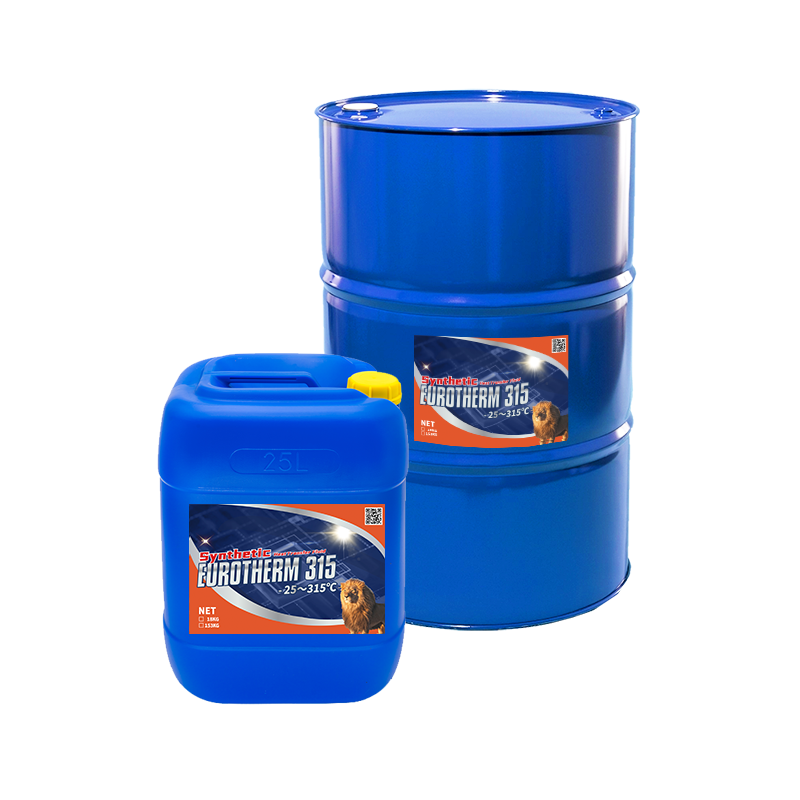Exactly how to Choose the very best Heat Transfer Fluid for Industrial Applications
Exactly how to Choose the very best Heat Transfer Fluid for Industrial Applications
Blog Article
The Function of Warmth Transfer Fluid in Enhancing System Performance and Safety And Security
In the ever-evolving landscape of industrial procedures, heat transfer fluids (HTFs) become pivotal elements in maximizing both system performance and safety. These specialized liquids, known for their remarkable thermal conductivity and regulated viscosity, allow effective warmth exchange, which is important for structured procedures. The influence of HTFs expands beyond mere effectiveness; their integral thermal security and reduced flammability significantly contribute to risk mitigation. As industries come to grips with the requirement for high-performance and risk-free procedures, recognizing the nuanced duty of HTFs comes to be important. What specifically makes HTFs so crucial in today's industrial structures?
Comprehending Heat Transfer Liquids
Warmth transfer fluids, typically considered the lifeline of thermal management systems, play a critical duty in regulating temperature throughout numerous industrial applications - heat transfer fluid. Industries such as chemical processing, power generation, and production rely on heat transfer liquids to ensure devices runs efficiently and safely.
The option of an ideal warmth transfer liquid is important to the success of a thermal administration system. In summary, an extensive understanding of heat transfer fluids is vital for optimizing system efficiency, making certain functional security, and achieving cost-effective thermal monitoring options.
Secret Residence of HTFs

The details warm ability of an HTF defines the quantity of warm power needed to transform its temperature, influencing how efficiently the system can react to temperature level variations. The boiling and freezing factors of HTFs also play an essential role, particularly in systems revealed to extreme temperature levels, ensuring liquid security and avoiding stage changes during procedure. Additionally, the chemical stability of HTFs under differing thermal problems is important to stop degradation and prolong fluid life. Compatibility with system products is necessary to prevent deterioration and product degradation, ensuring lasting operational reliability. These homes jointly educate the selection of a suitable HTF for specific commercial applications.
Enhancing System Performance
To improve system performance with warmth transfer fluids (HTFs), it is important to incorporate an extensive strategy that takes into consideration both fluid buildings and system design. The selection of a proper HTF is pivotal, as its thermal conductivity, viscosity, and details warm capability directly affect the efficiency of warm exchange.
Equally essential is the style of the warm transfer system itself. Engineers need to make certain that elements such as warm exchangers, pumps, and piping are created to complement the homes of the selected HTF. The surface area and material of heat exchangers should be optimized to make the most of warmth transfer performance. heat transfer fluid. In addition, the assimilation of sophisticated innovations, such as variable speed pumps and clever tracking systems, can substantially enhance the responsiveness and versatility of the system to transforming operational conditions.
Boosting Operational Security
Guaranteeing operational security in warmth transfer systems requires a careful emphasis on both the residential or commercial properties of heat transfer liquids (HTFs) and the style and maintenance of the whole system. HTFs must have thermal security, reduced flammability, and suitable viscosity to reduce risks such as leaks, fires, and system breakdowns. Selecting the best HTF is vital as it establishes the system's ability to manage temperature changes without compromising security.
The layout of the system need to incorporate redundancies and fail-safes to take care of possible hazards efficiently. This includes the integration of safety shutoffs, pressure relief devices, and temperature level tracking systems to find and deal with anomalies without delay. Normal maintenance is necessary to make sure that all elements, including pumps, pipes, and seals, are functioning appropriately and are cost-free from wear or deterioration, which can lead to hazardous leakages or failures.
In addition, workers in charge of the procedure and maintenance of warmth transfer systems have to be effectively learnt security protocols and emergency feedback procedures. Regular training programs and security drills can considerably reduce the chance you could try these out of mishaps, guaranteeing a safer working atmosphere. Inevitably, an extensive technique to safety-- including liquid option, system design, and workforce training-- is crucial for optimum operational security.
Market Applications of HTFs
Commonly utilized across numerous fields, warmth transfer liquids (HTFs) play an essential role in boosting the efficiency and reliability of thermal administration systems. In the chemical sector, HTFs are indispensable for maintaining accurate temperatures throughout reactions, guaranteeing product consistency and top quality. They promote warmth exchange procedures in reactors, condensers, and warm exchangers, thereby enhancing power usage and reducing waste.
In the oil and gas field, HTFs are used in both upstream and downstream operations. They take care of temperature in boring procedures and boost performance in refining procedures by providing stable thermal problems. This leads to lowered downtime and boosted safety and security, especially in vital operations such as distillation and fracturing.
The sustainable power market additionally benefits considerably from HTFs, specifically in concentrated solar power (CSP) plants. Here, HTFs move captured solar power to power turbines, making it possible for reliable power generation. The pharmaceutical market depends on HTFs for precise temperature level control in both synthesis and storage, ensuring item efficiency and safety.


In addition, the food and beverage industry makes use of HTFs for pasteurization, sanitation, and cooking processes, enhancing both item safety and security and manufacturing efficiency. Throughout these industries, HTFs function as crucial elements in maintaining optimal functional performance find more and security.
Final Thought
Warm transfer liquids are crucial in boosting commercial system efficiency and security by supplying high thermal conductivity, ideal thickness, and thermal security. Appropriate option and upkeep of HTFs boost warmth exchange performance, therefore boosting operational efficiency. The reduced flammability of these fluids is important for lessening threats and ensuring safe operations. Comprehensive personnel training and check my site regular maintenance additionally support the integrity and effectiveness of commercial processes, strengthening the vital function of HTFs in varied applications.
Report this page